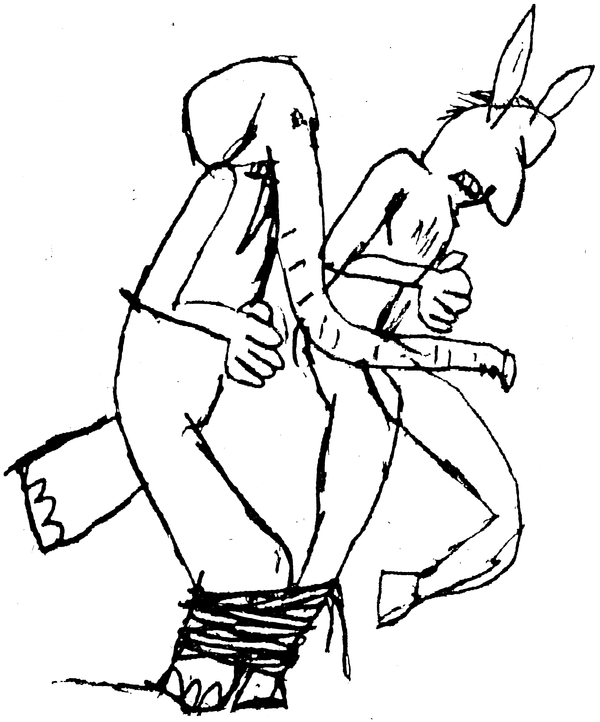New data show that 9 of the top-10 wealthiest congressional districts are represented by Democrats, while Republicans represent most of the poorer half of the country. The data, provided by the office of Rep. Marcy Kaptur (D-Ohio) and Ballotpedia, are just the latest sign of a political realignment: The Democrats, historically the party of labor, have increasingly become a coalition uniting the dependent poor with affluent, college-educated progressives. Meanwhile, Republicans, once the party of CEOs and country clubs, now have a voter base made up of workers without a college degree, with an ever-growing share of black and Hispanic workers joining their white coworkers in choosing the GOP.
No less important than the income divide is the college divide—a college credential being the biggest predictor for upward mobility, better health, and longer life expectancy. And the same political trend exists there. In 1980, Ronald Reagan won 76 of the counties with the highest percentages of college-educated voters. In 2020, Joe Biden took 84 of them.
When this kind of data are acknowledged at all by Democrats, it’s usually with wonder—a question mark, rather than an explanation. The only accounting ever on offer is that the conservative media have hypnotized the working classes with fear-mongering over cultural issues like Drag Queen Story Hour into abandoning their economic interests. “You know all those awful GIFs using a Meryl Streep line from ‘A Cry in the Dark’: ‘A dingo ate my baby!’? Well, it sometimes feels like Fox News is eating my mother’s brain,” wrote New York Times opinion writer Kara Swisher when her mother refused to abide by lockdown mandates early in the pandemic.
It’s true that cultural leftism has alienated many workers. Americans who don’t go to college are much less likely to believe that it’s bigotry to think biological men shouldn’t compete on girls’ sports teams, or that it’s racist to want to live in a colorblind society. And it isn’t surprising that they would say “No” to a party that asks them to betray their values for purported economic gain.
More important, cultural issues and economic ones are much more tightly connected than Democrats like to think. Many aspects of the culture war are class war in disguise. Leftist elites may view marriage as an antiquated and patriarchal form of exploitative oppression, but married people earn significantly more than their unmarried neighbors, by as much as 30 percent, a statistic that holds true across racial groups. Meanwhile, being raised in a single-parent household is the No. 1 predictor for downward mobility for children.
The culture war over Covid lockdowns similarly pitted the economic interests of the college-educated laptop class against those who perform manual forms of labor, while the Green New Deal would have replaced good union jobs in energy with $15 an hour gigs in environmental work.
Even the Democrats’ proposed pledges to support people at the bottom often end up perpetuating problems, like government subsidized pre-K. Conservatives might be worried about their children being exposed to sexualized instruction, but an equally significant problem is how the proposal sinks tax dollars into a program that reproduces the need for a second income for a middle-class family to survive in this economy. Sustaining the American Dream means ensuring families can thrive on a single income, rather than subsidizing the rat race that keeps both parents working punishing hours.
But if Democrats have taken up an alienating cultural agenda that undermines working families while pretending to cater to them, Republicans haven’t done much better. With a captive working-class base, it is unclear what they plan to deliver for these workers.
There are a few standouts—Sens. J.D. Vance of Ohio, Josh Hawley of Missouri, and Marco Rubio of Florida, for example. But they are the exceptions that prove the rule, just as Donald Trump’s shocking victory in 2016 was a reflection of the abandonment of the American working class by both parties. Trump promised to take an ax to the neoliberal order. No new wars, no free trade, and no open borders were his main campaign promises, which led directly to his victory. Even now, lower-income Republicans and Republican voters of color remain much more likely to pick Trump in a matchup against Florida Gov. Ron DeSantis.
Yet the Chamber of Commerce version of the GOP continues to beckon, the donor class quietly seducing Republicans away from their voters. Instead of standing up for workers, conservatives rail against unions as an arm of the Democratic Party. They aren’t wrong, of course. Unions sometimes place partisan loyalty over practical results, and some national unions did a 180 on immigration, embracing the idea that their mandate extends to the very workers undercutting their own members and their wages. All of this has contributed to historic lows of union membership in the private economy. But unions remain the best way for workers to take an active role in economic and political life.
“Workers feel that neither party represents their interests.”
With few exceptions, neither Republicans nor Democrats stood up for railroad workers’ right to strike last year. Neither Democrats nor Republicans are offering a way for workers to collectively bargain with management that’s neither adversarial nor insulting to their beliefs and values. Neither Democrats nor Republicans has a solution to the housing crisis that is deferring the American Dream for so many Americans, or a path toward upward mobility for struggling, divested urban and rural communities.
The Democrats’ hemorrhaging of lower-income voters of all races is no reason for Republicans to gloat. The Democrats may have alienated their working-class voters, but the Republicans are a working-class party without a working-class agenda. Workers feel that neither party represents their interests. They’re right.
